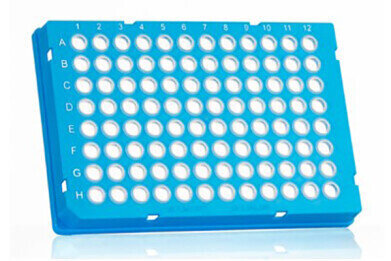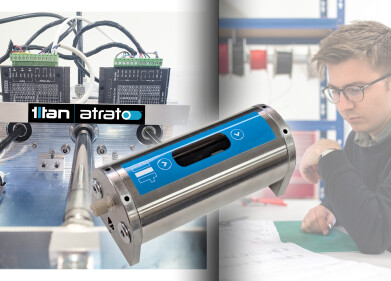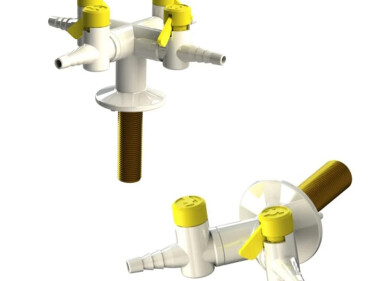-
 FrameStar 96 Well Skirted PCR Plate. (courtesy: Azenta Life Sciences)
FrameStar 96 Well Skirted PCR Plate. (courtesy: Azenta Life Sciences) -
 Comparing risk of evaporation in wells during a (q)PCR run in a one-component PP plate(left) and a two-component PP (wells) and PC (frame) plate (right). Red denotes high risk, yellow is medium risk and green (low risk).
Comparing risk of evaporation in wells during a (q)PCR run in a one-component PP plate(left) and a two-component PP (wells) and PC (frame) plate (right). Red denotes high risk, yellow is medium risk and green (low risk).
Laboratory products
Improving qPCR accuracy with a two-component plate design
Sep 10 2024
Azenta Life Sciences reports how the two-component design of its FrameStar® microplate range minimises thermal expansion and sample evaporation, significantly improving the consistency and reliability of qPCR results.
Standard PCR and qPCR plates are often made from polypropylene due to its chemical inertness and ability to create ultra-thin tube walls for fast temperature transfer. However, polypropylene’s thermal expansion and evaporation properties can hinder its suitability for precision-demanding applications like qPCR and Next Generation Sequencing.
The FrameStar PCR plates address these challenges with a unique two-component construction: polypropylene tubes embedded within a robust polycarbonate frame. This design minimises evaporation, which in turn improves the accuracy of qPCR experiments. It also facilitates miniaturisation, allowing for smaller reaction volumes, which reduces the consumption of costly PCR reagents.
Study data confirms that the rigid polycarbonate frame of FrameStar plates maintains its shape throughout the PCR process, preventing plate distortion and maintaining a secure seal attachment. This leads to more reliable and accurate data for quantification.
FrameStar PCR plates are available in 96- and 384-well formats, with various well-frame colour combinations. The 384-well version is ideal for low-volume PCR, while the 96-well plates come in low and standard profiles with a choice of non-skirted, semi-skirted, or fully skirted options.
More information online
Digital Edition
Lab Asia Dec 2025
December 2025
Chromatography Articles- Cutting-edge sample preparation tools help laboratories to stay ahead of the curveMass Spectrometry & Spectroscopy Articles- Unlocking the complexity of metabolomics: Pushi...
View all digital editions
Events
Jan 21 2026 Tokyo, Japan
Jan 28 2026 Tokyo, Japan
Jan 29 2026 New Delhi, India
Feb 07 2026 Boston, MA, USA
Asia Pharma Expo/Asia Lab Expo
Feb 12 2026 Dhaka, Bangladesh


















